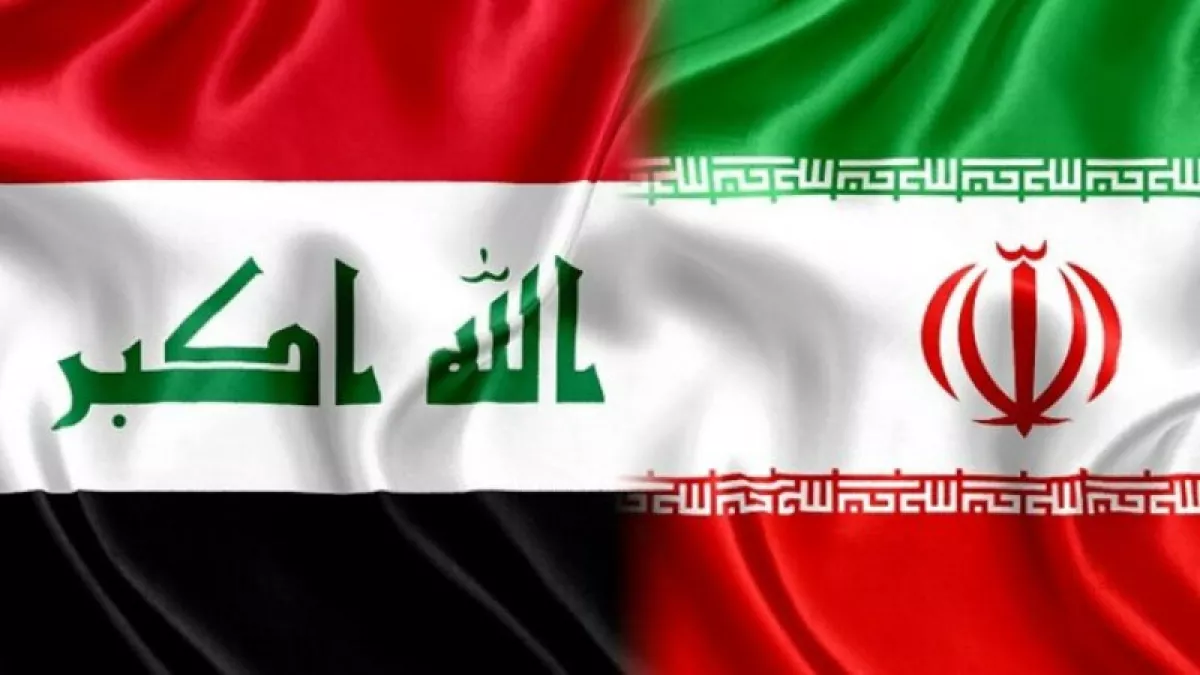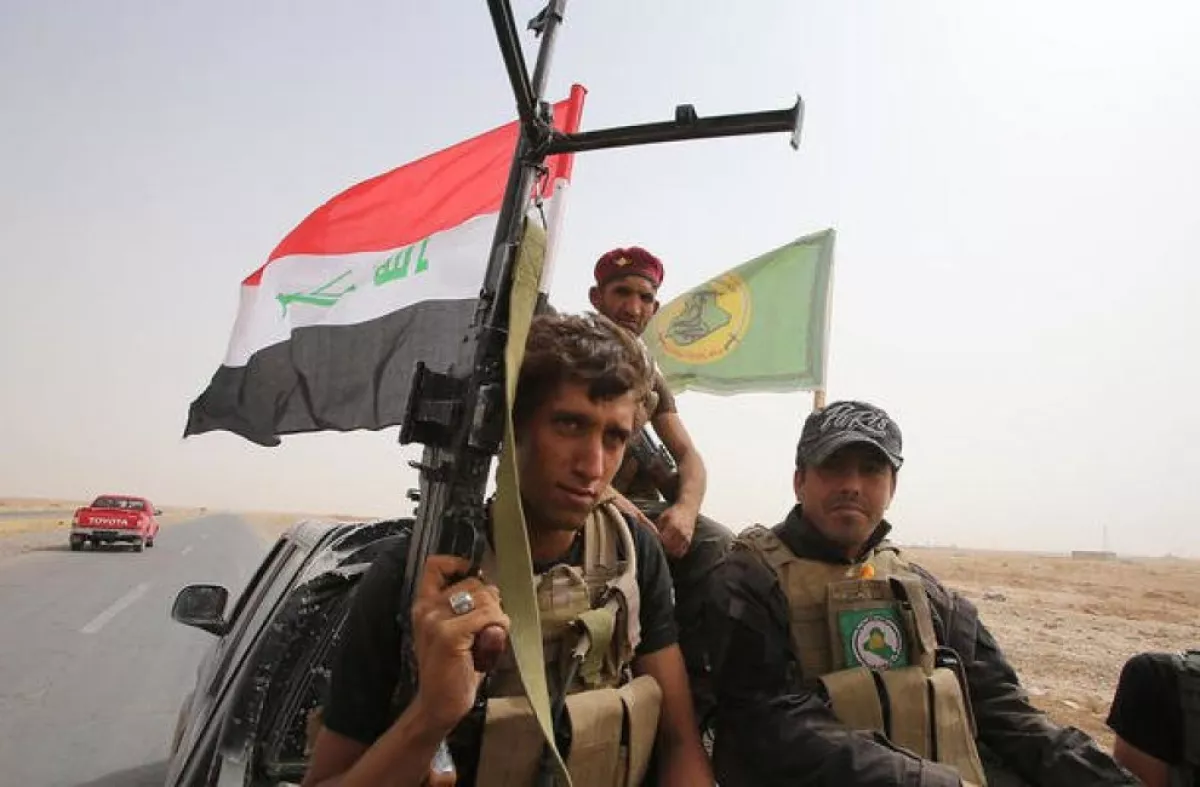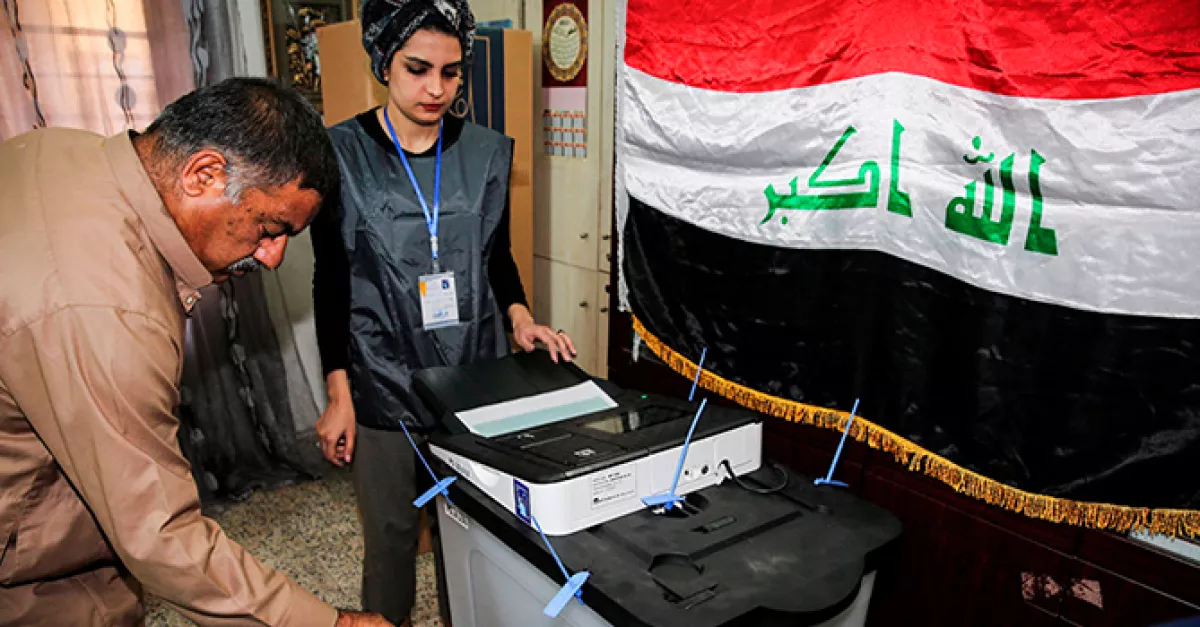Iran's strategy: Launching attacks on Israel from Iraqi soil Unpacking proxy warfare
According to well-informed publication Axios, Israeli intelligence has indicated that Iran plans to launch an attack against Israel from Iraqi territory in the near future, employing ballistic missiles and drones.
The ongoing conflict between Israel and Iran has already seen both sides conduct a series of strikes against each other. This situation forms part of a broader Middle Eastern war between Israel, alongside its ally the United States, and Iran, supported by its "Axis of Resistance." Israeli intelligence suggests that conducting an attack through pro-Iranian paramilitary groups in Iraq may be Tehran's strategy to evade a direct Israeli counterattack on Iranian soil. Essentially, Iran seeks to strike Israel using proxies from another country to avoid repercussions on its own territory. Notably, Iraqi militias have previously targeted Israel multiple times.
But how is this strategy feasible? Why would the Iraqi groups cooperate in this way? And what gives Iran the right to use another country’s territory to attack a third nation? The short answer is that many Iraqis are disenfranchised, and their opinions on these matters hold little weight. A more comprehensive explanation is necessary to understand the dynamics at play.

Iraq is largely controlled by pro-Iranian militias that are part of the coalition known as the "Axis of Resistance." This coalition also includes Palestinian Hamas, Lebanon's Hezbollah, the Syrian regime of Bashar al-Assad along with its loyalist militias, and the Yemeni Houthis. All of these groups look to Iran for funding and weapons. While the "Axis of Resistance" is predominantly made up of Shiite factions, it also includes Palestinian Sunni Islamists like Hamas. Iraqi militias have previously used drones to strike Israel, supporting Hamas fighters engaged in combat with the Israel Defense Forces (IDF) in the Gaza Strip.
Iraq holds a special place in the "Axis of Resistance," as well as in Iran's political and economic strategy. It can be considered a jewel in the crown of the Iranian empire. With a population of 40 million, Iraq is a large and resource-rich country, ranking among the top four or five oil-exporting nations, significantly ahead of Iran, which ranks seventh. Western oil and other companies actively cooperate with Iraq, making it a vital territory for Iranian businesses that are transferring their assets there to circumvent Western sanctions.
Since Iraqi banks are not subject to sanctions, other members of the "Axis of Resistance," including Iran, can conduct commercial transactions through them. This also applies to Hezbollah, which controls a network of exchange offices in Lebanon. Although Hezbollah itself is under American sanctions, it operates with Iraqi financial institutions, thus establishing a connection to the global financial system. The same can be said for Iran itself.
However, beyond financial activities, Iraq holds significant and increasingly vital military and political importance for Iranians and their allies.
Pro-Iranian armed groups currently wield considerable influence in Iraq. They are united under an umbrella organization called the Popular Mobilization Forces (PMF), which consists of over 100,000 fighters. Supporters of the PMF form the Coordination Framework in parliament, which is central to the ruling coalition. The government is largely in their hands, and it pays salaries to the militias. Furthermore, the government plans to create around 700,000 new jobs in the near future, including a doubling of the PMF’s ranks. There is little doubt that these positions will be allocated to relatives and friends of the militias. Essentially, this represents a takeover of power by armed pro-Iranian groups and their families, who have transformed the state into their own personal fiefdom.
Israeli analyst Jonathan Spyer, who specializes in studying Iranian influence in the region, points out that pro-Iranian militias in Iraq have already received official status as part of the country's armed forces through the Popular Mobilization Forces (PMF). Furthermore, they hold positions in Prime Minister Mohammed Shia' Al Sudani’s government and have established a significant economic empire through the Muhandis General Company, which can acquire vast areas of the country without parliamentary consent. The PMF and the Coordination Framework control the Iraqi Supreme Court and the Ministry of Interior.

In addition to Spyer’s observations, it is essential to highlight that Iran may also influence the appointments within the command structure of Iraq's counterterrorism forces. This became clear in 2019 when Tehran successfully facilitated changes in the leadership of these forces.
As Spyer explains, the framework for this strategy is neither a secret nor a mystery. Years ago, he spoke with an officer from the pro-Iranian Badr Brigades, the oldest of the Iranian-affiliated Iraqi militias, during a visit to the movement's headquarters in Baghdad in 2015. Spyer recalls the officer stating, "In Iran, there is an army and there is the IRGC, so here we will have the same."
The IRGC, or Islamic Revolutionary Guard Corps, serves as Iran's second army, enlisting the most devout soldiers and officers. It controls key sectors of the economy, various media outlets, and militias that suppress social protests, as well as some governmental agencies of the Islamic Republic of Iran, effectively functioning as the force that governs the country. According to estimates by Iranian opposition journalists, the IRGC, comprising only a small percentage of the population, controls a significant portion of the country’s GDP. In Iraq, pro-Iranian militias are establishing a similar system.
This view of contemporary Iraq is echoed by leading American researcher Michael Knights. He notes that Iraq has a cabinet headed by Prime Minister Mohammad Shia al-Sudani, along with the Coordination Framework, a political bloc closely tied to Iran. However, this political architecture arose for a single reason: the electoral victor in October 2021—the populist movement led by Shiite cleric Muqtada al-Sadr—abandoned parliament in June 2022. The Sadrists had performed well in the elections by criticizing Iran, its allies, and the corruption propagated by pro-Iranian forces. But why did they leave parliament? They took this step after the judiciary, controlled by leaders of Iran-backed militias, altered the rules for government formation in favour of Tehran's allies, who had lost the Iraqi elections. The Sadrists and their allies held a majority, but the pro-Iranian Supreme Court ruled that they needed two-thirds of the votes to form a government, which the winners did not possess.
In response, the Sadrists declared that they had no place in such a parliament and did not intend to be puppets of Iran. They subsequently exited the parliament. Under Iraqi law, this allowed the pro-Iranian bloc, which had finished second in their electoral districts, to assume the seats previously held by the Sadrists, in addition to those they had legitimately won.
As a result of the judicial ruling and the Sadrists’ withdrawal, the pro-Iranian forces, despite having lost the election, secured a two-thirds majority. This shift was accompanied by armed pressure on opponents of the pro-Iranian factions, with militias targeting their homes and offices, including through drone strikes.
Michael Knights highlights that the current monopolization of power by the militias and the associated Coordination Framework (CF) across all branches of government in Iraq is unprecedented in the country's history since the overthrow of dictator Saddam Hussein by American forces in the early 2000s. The pro-Iranian bloc effectively governs the state, controlling the parliament, the Supreme Court, numerous security forces, and a significant portion of the economy. They wield a level of authority that Iraq has not seen since the era of Saddam Hussein.
However, Prime Minister al-Sudani leads Iraq only nominally. The real power in Baghdad rests with three militia commanders, each closely tied to Iran and heading the Coordination Framework: Qais al-Khazali, the leader of the Iran-backed militia Asa'ib Ahl al-Haq; former Prime Minister Nouri al-Maliki; and Hadi al-Amiri, the head of the Iranian-created Badr Organization. Al-Amiri also controls the country's Ministry of Interior.
Moreover, the pro-Iranian coalition came to power after losing the 2021 elections through blatant judicial manipulation and armed attacks on opponents. The Iraqi elections themselves have largely become a futile exercise that does not reflect the sentiments of the populace. Voter turnout in the most recent parliamentary elections was just 41 per cent, with a majority of citizens choosing not to participate in the process.

Despite Iraq's oil wealth, many citizens live in extreme poverty. A significant portion of the youth is unemployed. In residential neighbourhoods, electricity is periodically cut off, leading to fatalities during the scorching summer heat. The country faces severe challenges related to water shortages. In 2018, approximately 100,000 residents of Basra suffered from poisoning due to contaminated drinking water.
The root cause of these issues is corruption and mismanagement. The country’s wealth primarily belongs to political parties and militias. For example, to secure a job as a doctor in Baghdad, one might need to pay a bribe of $10,000 unless they are related to someone in power.
Iraq has around one million security personnel, but the actual number is much lower; senior officers pocket salaries and expenses allocated for non-existent military units. Thus, militias, political parties, and the military in Iraq are not only the ruling authority but also the main employers, siphoning off a significant portion of the nation’s oil revenues. While they fill their pockets, the country’s infrastructure is deteriorating.
In the autumn of 2019, hundreds of thousands, possibly even millions, of Iraqis—primarily workers, the impoverished, and students—took to the streets to protest against poverty. They demanded access to basic social services, housing, and jobs. The protesters expressed their discontent with all political parties. However, they were unable to establish collective systems of counter-power in workplaces and communities based on regular assemblies and fully accountable elected self-governing bodies (such as councils or strike committees), despite some individual attempts in that direction.
Ultimately, this chaotic, unmanageable movement, which was coordinated primarily through the Internet, was suppressed by Iran-backed militias. These pro-Iranian forces affiliated with the Popular Mobilization Forces (PMF) abducted and killed activists and participants of the uprising. As a result, the power of these pro-Iranian factions, which became the main armed protectors of the entire bureaucratic and financial elite, increased even further.
The current Iraqi regime functions as nothing more than a state-sponsored patronage system for the armed groups associated with Iran that have seized power. Consequently, it can afford to launch attacks against Israel in support of the Iranian alliance, the "Axis of Resistance." The only question remains how long the majority of Iraqis will tolerate the regime's violence and the undeniable fact that they are being dragged into a war with Israel that they have no desire to fight.








